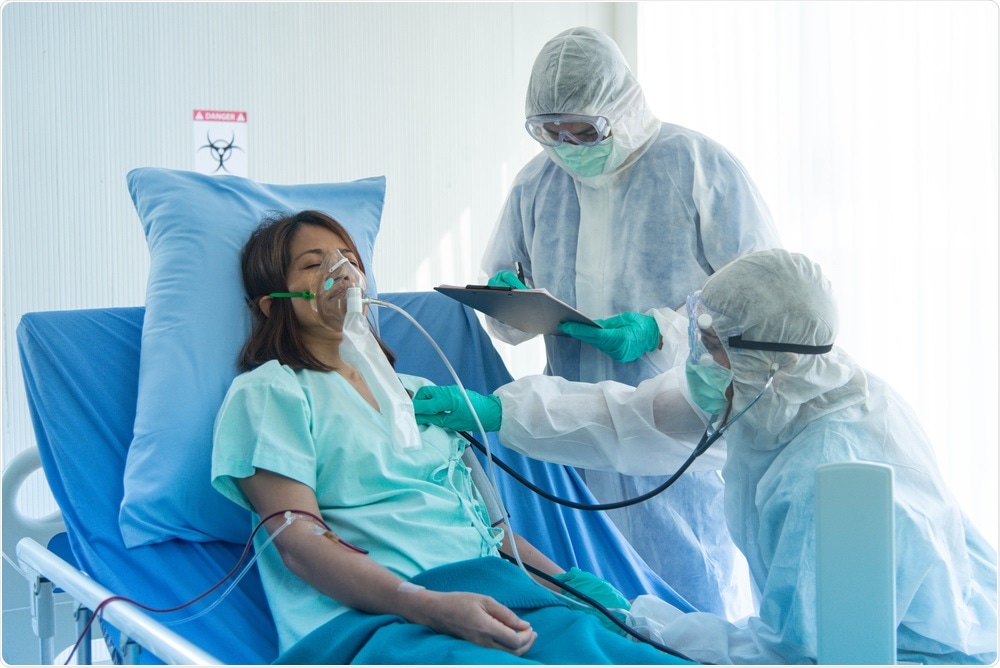A recent study published on the preprint server medRxiv* discusses the clinical characteristics and outcomes of patients with systemic autoimmune rheumatic diseases (SARDs) who were previously vaccinated against the severe acute respiratory syndrome coronavirus 2 (SARS-CoV-2), which is the virus responsible for the coronavirus disease 2019 (COVID-19).
 Study: Clinical characteristics and outcomes of COVID-19 breakthrough infections among vaccinated patients with systemic autoimmune rheumatic diseases. Image Credit: Arunporn Thanapotivirat / Shutterstock.com
Study: Clinical characteristics and outcomes of COVID-19 breakthrough infections among vaccinated patients with systemic autoimmune rheumatic diseases. Image Credit: Arunporn Thanapotivirat / Shutterstock.com
What are SARDs?
SARDs are autoimmune diseases that include Rheumatoid Arthritis (RA), Systemic Lupus Erythematosus (SLE) (and subsets of Lupus), Sjögren’s syndrome (SjS), Systemic Sclerosis (SSc), Polymyositis (PM), and Dermatomyositis (DM). The common theme in each of these diseases is the dysregulation of the immune system that causes the immune cells to attack autoantigens.
SARD patients are more susceptible to infections due to either active autoimmune disease or the types of medications they are prescribed. More specifically, many SARD patients are prescribed disease-modifying anti-rheumatic drugs (DMARDs).
COVID-19 and SARDs
Throughout the ongoing COVID-19 pandemic, SARD patients remain at a higher risk of developing severe symptoms of this disease. It is reported that a small percentage of COVID-19 cases among SARD patients in a large United States healthcare system occurred among fully vaccinated patients. The use of DMARDs in this population, particularly glucocorticoids, methotrexate, mycophenolate mofetil, and rituximab, may reduce the immunologic response activated by COVID-19 vaccination.
Post-vaccination, the risks associated with breakthrough COVID-19 infections among SARD patients are unknown. A breakthrough infection is defined as when a vaccinated individual becomes infected with the virus they are immunized against. Ultimately, the pathogen ‘breaks through’ the protection given by the vaccine.
About the study
To understand the COVID-19 vaccine breakthrough infection rate among SARD patients, a group of Massachusetts researchers extracted the clinical details of SARD patients who received the COVID-19 vaccination 14 days or more prior to a positive SARS-CoV-2 molecular test. They found that, as compared to the outcomes of breakthrough infections among the general population, a larger number of immunized SARD patients required hospitalization or died.
Between December 11, 2020 and July 30, 2021, the researchers identified 340 confirmed COVID-19 infections among SARD patients. Of these patients, 16 (4.7%) patients had breakthrough infections.
In this study, the researchers considered the final vaccination dose as either the first dose in a one-dose series (Janssen/J&J) or the second dose in a two-dose vaccination series (Pfizer-BioNTech and Moderna).
Study results
Among the 16 SARD patients who had breakthrough COVID-19 infections, 93% presented with symptoms. The most common symptoms reported by these individuals included fever, cough, and malaise, which affected 56%, 44%, and 38% of the patients, respectively. Six of the 16 patients were hospitalized, of which four required supplemental oxygen and one required mechanical ventilation.
The researchers observed that the most common SARDs included RA, inflammatory myositis, and SLE. The most frequent immunosuppressive medications that were being taken prior to first vaccine dose included rituximab, glucocorticoids, mycophenolate mofetil or mycophenolic acid, and methotrexate. Notably, one SARD patient was medication-free (no DMARD or glucocorticoid) at the time of their COVID-19 vaccine, yet still presented with a COVID-19 breakthrough infection.
“This study complements observations regarding the attenuated antibody response to COVID-19 vaccination in patients with SARDs by identifying serious clinical outcomes from breakthrough infections in patients receiving DMARDs that have been reported to have blunted vaccine responses.”
Study limitations
The current retrospective study cohort is small; therefore, further studies will need to be conducted to determine the rate of breakthrough infections associated with SARD treatments. It is also possible that SARDs patients with asymptomatic or less severe breakthrough infections were not included in the current study.
To conclude, a small minority of COVID-19 cases are reported among COVID-19-vaccinated SARD patients in a large healthcare system. Collectively, this study suggests that the blunted SARS-CoV-2 antibody response following COVID-19 vaccination in certain DMARD users may be associated with an increased risk of breakthrough infections that may be severe and even fatal.
The current study identifies characteristics of COVID-19 breakthrough infections that may guide the prioritization of booster vaccines and other risk-mitigating strategies in patients with SARDs.
*Important notice
medRxiv publishes preliminary scientific reports that are not peer-reviewed and, therefore, should not be regarded as conclusive, guide clinical practice/health-related behavior, or treated as established information.
- Cook, C., Patel, N. J., D’Silva, K. M., et al. (2021). Clinical characteristics and outcomes of COVID-19 breakthrough infections among vaccinated patients with systemic autoimmune rheumatic diseases. medRxiv. doi:10.1101/2021.08.04.21261618. https://www.medrxiv.org/content/10.1101/2021.08.04.21261618v2
Posted in: Medical Research News | Medical Condition News | Disease/Infection News
Tags: Antibody, Arthritis, Autoimmune Disease, Coronavirus, Coronavirus Disease COVID-19, Cough, Dermatomyositis, Drugs, Fever, Glucocorticoid, Healthcare, Immune System, Lupus, Lupus Erythematosus, Methotrexate, Myositis, Oxygen, Pandemic, Pathogen, Polymyositis, Respiratory, Rheumatoid Arthritis, Rituximab, SARS, SARS-CoV-2, Sclerosis, Severe Acute Respiratory, Severe Acute Respiratory Syndrome, Syndrome, Systemic Lupus Erythematosus, Vaccine, Virus

Written by
Dr. Ramya Dwivedi
Ramya has a Ph.D. in Biotechnology from the National Chemical Laboratories (CSIR-NCL), in Pune. Her work consisted of functionalizing nanoparticles with different molecules of biological interest, studying the reaction system and establishing useful applications.
Source: Read Full Article
